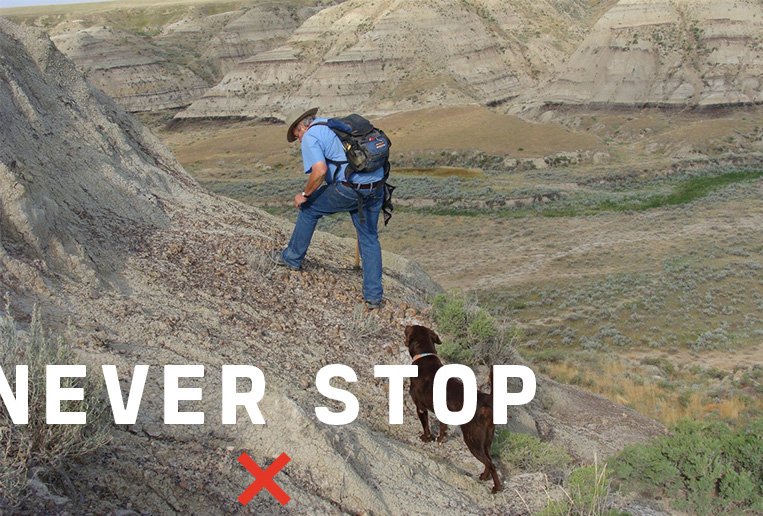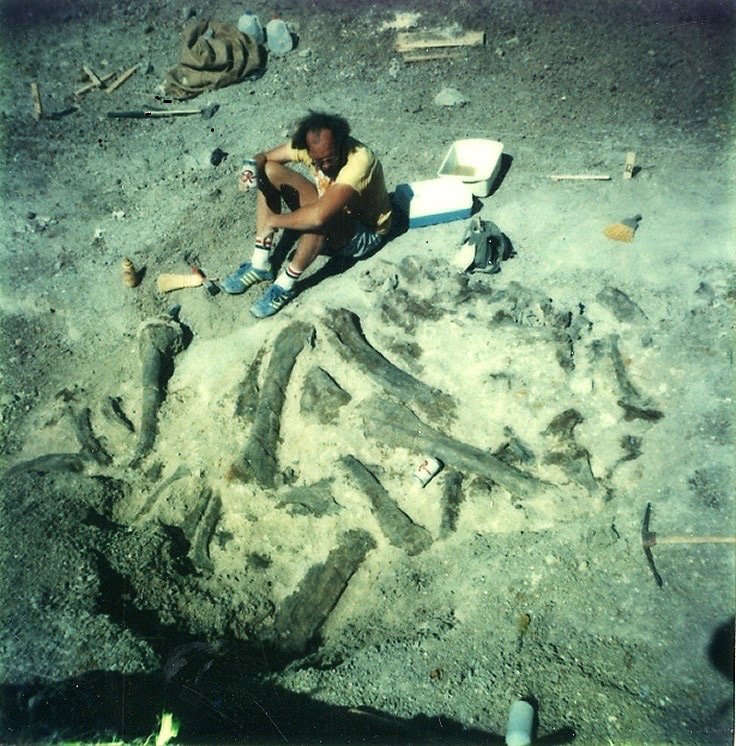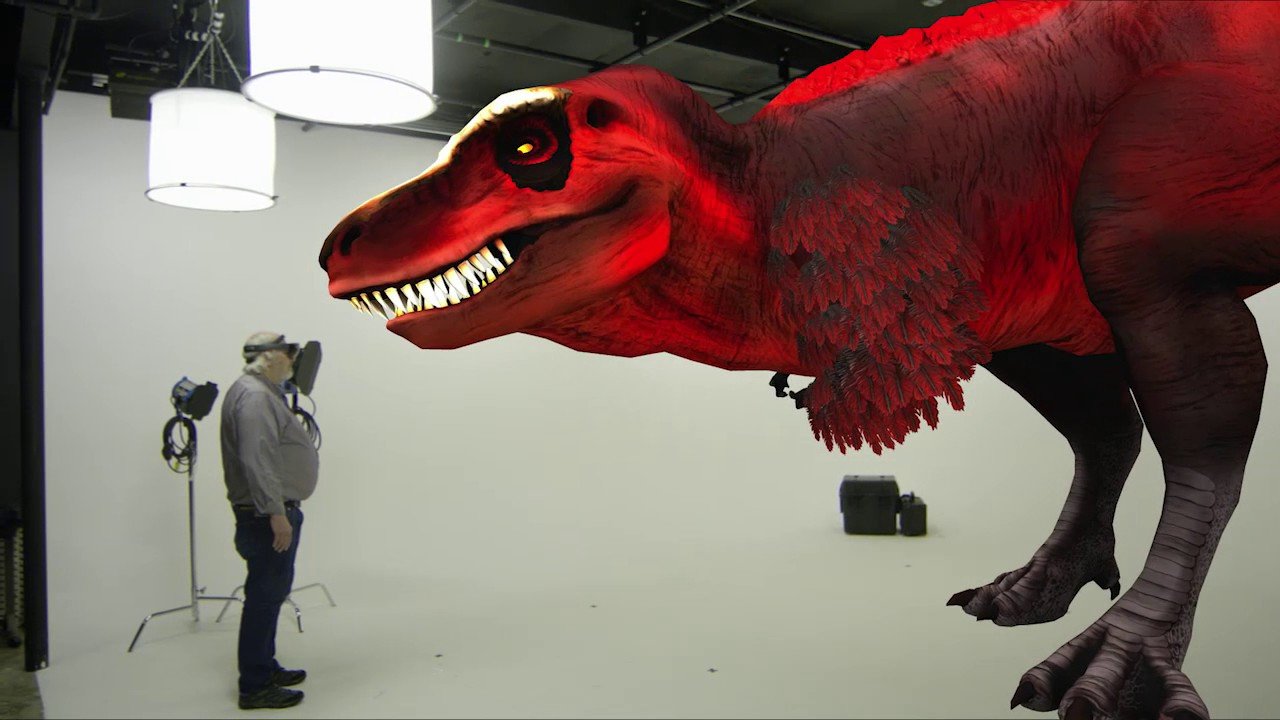Jack Horner is a severely dyslexic, dinosaur paleontologist. He attended the University of Montana for 14 semesters without receiving a degree. He has since received two honorary doctorates of science and a plethora of awards including a MacArthur Fellowship. Jack was Curator and Regent’s Professor of Paleontology at Montana State University in Bozeman, Montana for 34 years. He has more than 300 publications. He was the technical advisor for all of the Jurassic Park/ Jurassic World movies. At Chapman University where he now teaches, Jack encourages his honors students and dyslexic mentorees to challenge their preconceived ideas. Horner Science Group
JACK HORNER
I found my first fossil when I was six years old. And I found my first dinosaur bone when I was eight, my first dinosaur skeleton when I was 13. When I was a kid, I knew I wanted to be a paleontologist, and I didn't think there was much hope for it, though. I was doing very poorly in school. I think I was always a pretty positive kid. And so even though I wasn't doing well in school, I was really happy about the fact that I was finding all these cool fossils, and I was making collections. I don't know when it came to me that I would do this, but I think I just was born this way.
*
The dinosaur extinction - dinosaurs didn't really have much to say about it. A meteor crashed into the earth and wiped them out. We, on the other hand, are creating quite an extinction right now. And we actually could do something about it, but we're not going to do anything about it because we're just greedy. We always just slough it off to the next generation.
They can fix it," we say. I'm a war baby, right? I was born in 1946, and by 1964, when I graduated from high school, our generation was going to fix everything. And yet we became the biggest consumers in the history of the world. So we didn't fix anything, we just made a bigger mess. So, I don't think we can leave it up to anybody because everybody wants a piece of the pie.
First off meat-eating animals eat other animals. So, the meat-eating dinosaurs would be scary, but on the other hand, we should think of them more like an eagle or a hawk, rather than a Tyrannosaurus rex chasing jeeps around. The thing that Jurassic Park - and people didn't really realize it, but it's a Steven Spielberg thing. He makes animals that eat people, whether it be a shark or it be a dinosaur, these are animals that will break through a building just to eat a person rather than eat a Triceratops that's sick out laying out in the field.
If you remember Jurassic Park, there was a Triceratops out there that was sick, and it was just laying out there and nothing was eating it. But the dinosaurs, when they got loose, they were just chasing people around. We see one scene where a T-Rex takes down another dinosaur, but for the most part, they're just chasing people. And so, the general public's notion of dinosaurs is that's how they would be.
*
I'm an educator, and I'm interested in educating people about what dinosaurs were really like. One of the ways to do that is through working on exhibits for museums, working with some of these other companies that make things like exhibits, working with them to try to update their ideas of what dinosaurs were like. Modern exhibits oftentimes have a lot of VR in them and a lot of computer graphics and things like that.
So we have to work together with companies that are interested or are doing that sort of thing. We started working early on with Microsoft to make these virtual dinosaurs that you could put on a VR mask and see these dinosaurs. We also made a little VR game that kids could play and dig up dinosaurs. We're just trying to figure out ways to go beyond what we can do at universities and see if we can figure out ways of just sharing all this new information.
*
Anytime that I am out in nature, I'm not always in the present. I oftentimes drift back into the past and different levels. And so, when I'm looking at a mountain in Montana, a big cliff, for example. I'm looking at the beauty of the cliff, but I'm also looking at what it represents, what that rock unit actually represents.
And, in many cases, cliffs in Montana are a rock unit called the Madison Limestone, which represents an ocean that existed 300 million years ago. And so, I can sit there and look at this spectacular 2000-foot cliff and think of it as a beautiful thing, and also imagine myself sitting next to this tropical sea that it represents. So I live in time, I guess.
*
If there's something in this world you want to be, if you have the ambition, if you have the passion to be something, and you have the ambition to go for it, then go for it. Be what you want to be. And don't worry about what other people say. A lot of people will say, “Oh, you shouldn't do that because you won't make enough money.” That's probably true, if that's all you're interested in. If you have a passion to do something, then go for it.
This interview was conducted by Mia Funk and Lila Muscosky with the participation of collaborating universities and students. Associate Interviews Producer on this podcast was Lila Muscosky. Digital Media Coordinators are Jacob A. Preisler and Megan Hegenbarth.
Mia Funk is an artist, interviewer and founder of The Creative Process & One Planet Podcast (Conversations about Climate Change & Environmental Solutions).




















































































